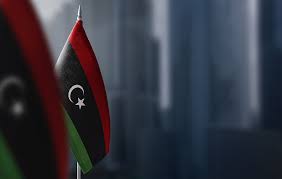APA-Tripoli (Libya) Libya has been without a unified central government ever since its strongman of 42 years Muammar Gaddafi, was toppled and killed in an armed uprising in 2011.
A unity government that had eluded Libya for more than a decade may be formed in a matter of months.
No timetable has been set but in principle the rival leaders who led two separate governments in Tripoli and Tobruk have abandoned their instransigence and agreed to form a single authority.
The agreement also includes holding elections which were originally scheduled for December 2021 only to be rescheduled for June 2022 and later postponed indefinitely.
Writing on X formerly Twitter over the weekend, the UN’s envoy to Libya Abdoulaye Bathily said he had met with Libyan officials including High Council of State members Adel Karmous, Waheed Burshan, Salah Mito and Nizar Kaawan.
According to Bathilly, Libya’s current political situation characterised by the stalemate between the two rival factions based saperately in the capital Tripoli and the eastern city of Tobruk and the future implementatin f the country’s electoral laws were discussed.
“We discussed the current political stalemate in Libya and explored ways and means to overcome the deadlock.” Bathily wrote.
The Senegalese diplomat enjoined Libyans negotiating from all sides of the political spectrum to real a consensus on bringing a definitive end to the crisis and chart the country’s future.
Libya has been without a central government since 2011 when Muammar Gaddafi, the country’s leader for 42 years was toppled in an armed uprising, leading to a near-total breakdown of administrative functions.
The jostling for control by the two rival governments was accentuated by the presence of armed militias backing either side.
However, the country seems to be inching closer to unity as various parallel institutions which were operating for both authorities announced they were merging.
One example is the announcement last August of a merger between Libya’s rival banks, prompting economists to say that the economic and monetary crisis which had dogged the country since the civil war may soon be over.
Another bank had emerged in Tobruk to rival Libya’s main central bank based in Tripoli soon after the North African nation descended into a second full blown civil war in 2014.
Many economists had blamed the ensuing monetary crisis in Libya on the presence of the central banks which were serving the two rival regimes.
During the last 12 years, without a consistent monetary policy to back it, the value of the Libyan dinar had plummeted, leading to a rise in the prices of food and other basic essentials.
WN/as/APA


